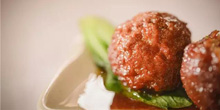Discovering the book of Jinxi
(chinadaily.com.cn)
Updated: 2016-01-19
Jinxi is an ancient water town just outside of Suzhou in Jiangsu province. With 2,500 years of history, Jinxi is like a thick book, rich in culture, with delicate architecture and a laid back lifestyle.
The lake is the cover
Wubao Lake is located at the entrance of downtown Jinxi. The old lotus bridge stretches across the lake; a long corridor of tile roofs and raked eaves, arched to allow boats to pass below. Lotuses can be found growing on the town-side, which is how the bridge got its name.
Across the bridge is the Lianchi Temple. The ancient halls with yellow walls and willow trees are tranquil and offer great a vantage for taking in the lake, the bridge and the lotuses.
Boats are the bindings, and bridges the spine
Jinxi is connected by five lakes via a network of waterways crisscrossing the small town. There are 36 ancient bridges which cross the waterways, but the most ideal way to take in this sleepy little water town is by boat.
If you take a canal cruise the starting point is Lianchi Temple, navigating to Lingtang Cove, Jieshou Bridge, and Nantang Bridge. After reaching Nantang Bridge, the boat returns, running past Jieshou Bridge, Puqing Bridge, Zhong'an Bridge and Zhonghe Bridge before arriving back at Lianchi Temple.
Commonly known as Lihe Bridge, the Nantang Bridge was first built in 1129 AD during the Song Dynasty and renovated during Emperor Qianlong's reign in the Qing Dynasty (1644-1911). The bridge has witnessed the passing of history for almost 900 years. In the 1980s, Chen Yifei, a famous painter, drew an oil painting of the bridge. The painting was named Morning (晨).
There is also a waterside gallery, built with red pillars and black tiles, offering a sheltered space for retailers and visitors.
History is the story
The glow of dawn and dusk cast light across the waterways running through the town, turning the water into a decorative woven fabric. It’s this effect that gives the town its name,”Jinxi”, “Jin” meaning brocade and “xi” meaning stream.
According to archeological studies, human existence in the city can be traced back to the Neolithic Age, bringing a kind of tenderness and tranquility to the water town, inspiring many writers and poets over the years.
The eminent Chinese writer, Shen Congwen, described the town as "a sleeping maiden" during his short stay there during the 1970s.
In addition, there are unique folk museums, such as the Museum of Ancient Tiles and Bricks, Antiques Museum, Zhangsheng Art Museum, Lamp Museum and Crab Culture Museum, within the town’s square-kilometer, where visitors can enjoy the delicate landscape, meditate on the past and discover treasures.
Slow pace of life is the setting
There can be no simpler pleasure than enjoying a cup of tea. Jiwu Teahouse offers a wide variety of home-brewed specilaities, such as osmanthus wine and authentic Pu'er tea.
Small bridges and flowing water surround the teahouse and visitors can sit aboard a boat on the river and enjoy the view of the green willows and silent temples. Guests are encouraged to enjoy a cup of calming tea, relax and take a break from the worries of daily life.
The Buddha will appear if you concentrate without distractions. A cup of light tea can capture all the flavors of life. With an open mind, guests can witness thousands of beautiful moments.
News
Four special holiday dishes to try in Kunshan
Like Christmas Day in the West, it is traditional in China to cook up an enormous feast on Chinese New Year, with dinner tables groaning under the weight of dozens of dishes.


